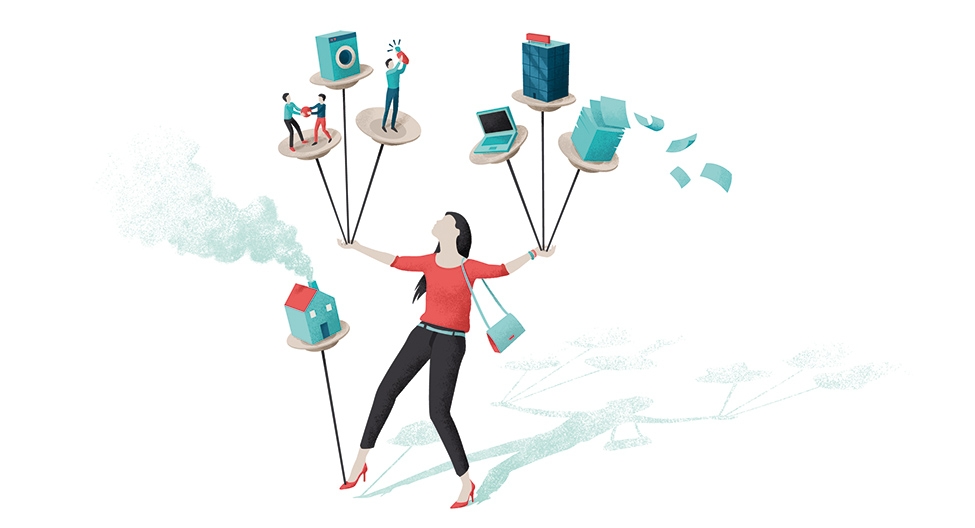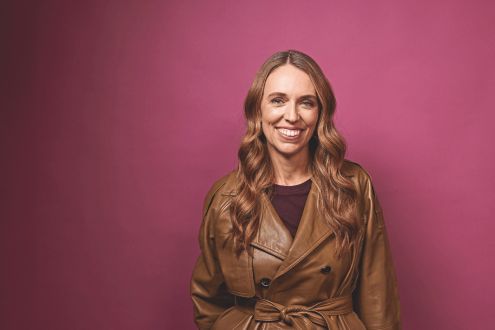I’m so stressed all the time
Our award-winning coach Kim Morgan meets a woman who is trying to be everything to everybody

Are you taking on too much? The result could be that you aren’t giving 100% to anything in your life.
Coaching session one: needing to offload
Louise* had a demanding senior role in a financial-services organisation. She booked some coaching sessions to help with her work-life balance. She appeared highly organised and in control but, as Louise began to tell me about her life, I could see that she was feeling really stressed.
‘I’m trying to be a good mother; an inspiring leader at work; a loving wife; a caring daughter to my elderly father. My best friend is going through a painful divorce, and I am trying to be there for her, too. But I feel so pressured all the time. It is hard to divide myself between all these things, and I am not doing any of them well. I feel everything is about to fall apart. How is it possible to keep fit and healthy, look good, attend school sports days, read with my children every night and manage a large team in a fast-moving business? Oh, and fit in some mindfulness practices every day, as the media suggests that we should?’
Louise burst into tears and wept for the rest of the session. I discovered that she had delayed having children to build a career, and now found herself in her mid-40s, with young children and an elderly father to look after. Following the birth of her second child, she negotiated a part-time role, but was simply doing the same amount of work in less time.
Some clients want to set goals and make changes at once. Others need the first session to offload their concerns. I felt Louise needed to have her feelings understood without me trying to ‘fix’ her. She seemed exhausted and relieved to have said what she hadn’t been able to say to anyone else. We made an appointment to meet again in a week’s time.
*name has been changed
Coaching session two: reducing life’s demands
Louise had spent a lot of time thinking about our first session. She said it had been useful to ‘hear herself saying everything out loud’ and had realised that she had been trying to do everything on her own. She had spoken to her husband about how they could share more of the childcare. She had also arranged to have carers visit her father twice a week. ‘These small changes have given me breathing space, and were surprisingly easy to negotiate,’ she said.
We were dealing with practical steps to lessen some of the demands of Louise’s life. But she still seemed overwhelmed and unhappy. Coaching can be about focusing on practical changes to improve our lives, but it can also be about looking at the thoughts, feelings, hopes, dreams, values and beliefs that lie behind our behaviours.
I asked Louise: ‘If you could be another person for a week, who would you be?’ She didn’t hesitate: a woman working for herself, living in the countryside, spending more time with family, and having more fun. ‘Would it really be possible to have that?’ she asked. We agreed to explore it further.
Coaching session three: making dreams a reality
Our third session was pivotal. We continued to implement small, practical changes. One of the most useful was Louise’s boss agreeing to her working from home one day a fortnight. Louise also relaxed some of her own high standards: her family would have a ready-meal once a week and Louise resigned from the PTA. But the most powerful work we did was developing a five-year plan for Louise to achieve her dream of self-employment and a life in the countryside.
For change to happen, we need to know what we want and imagine it in detail. This helps us to work backwards, identifying the steps needed to achieve our goal. Four years later, Louise is winding down at work and preparing to move.
To change your life, explore little changes – but also have a vision of the future you want and a plan to get you there.
For more from Kim, go to barefootcoaching.co.uk
Illustration: Andrea De Santis









